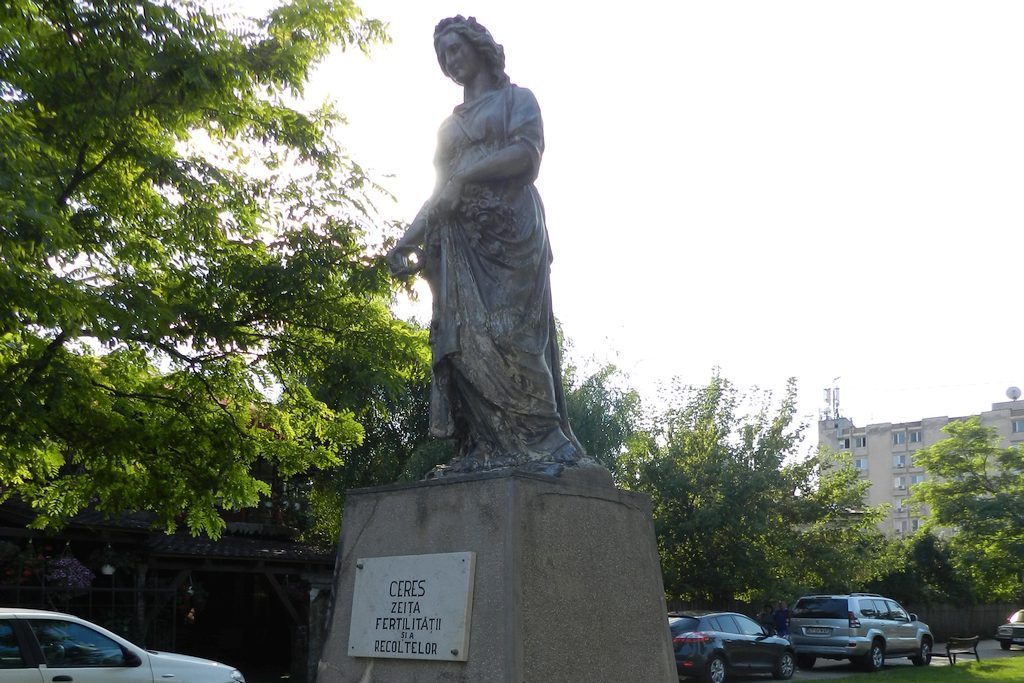

Statue of Ceres is one of the oldest monuments of the city, the work of an unknown artist.
Named “Ceres” after Roman goddess of agriculture and grain. The statue depicts a young woman who keeps wild flowers in the foothills dress, and on her head and right hand, wreaths of flowers.
On the white marble plaque on the pedestal of the monument is written: “Ceres – goddess of fertility”.
The monument was probably made in the second half of the nineteenth century, when the public garden of the town was arranged, where it was originally installed
The first documentary attestation of Caracal in a charter, dates back of November 17th (XI) in 1538.
Located in the plain of Romanaţi, Caracal is full of relics that prove the habitation of this land since prehistory. Archaeological findings are evidence of Paleolithic, Neolithic and Bronze Age. It is located between the ruins of the Roman fort Romula (com. Resca, north of Caracal) and the city Sucidava (Corabia). In the city are the ruins of a tower which was attributed by folklore to Roman Emperor Caracalla (217), from whose name would come the city’s name. Another opinion is that the city’s name comes from Cumanian or Peceneagan “kara kale” ie black city.
The estate of the Caracal city was originally part of the vast fortune of the Craioveşti family. In 1589, when Mihnea Turcitul decided how to share the wealth of this family, Caracal came on account of reign, creating the framework for urban development. Michael the Brave made here a royal court and a church. Also Michael the Brave raised Caracal to the rank of city.
Principalities Unification in 1859 has left traces and Caracal, also.
Ioan Dumitriu, deputy in the Ad-Hoc Divan from those years, is buried in the Church “All Saints”, built in 1818. The church is the church Icon of St. Christophor – St. with wolf head.
During the two world wars Caracal was highlighted with two regiments which were covered with glory in the fight for the country: 2nd Regiment Romanați and Regimentul 2 Călărași.
Until the communist regime in Romania, Caracal was the residence of Romanați County.
On November 24th, 1994 Caracal was declared municipality.
